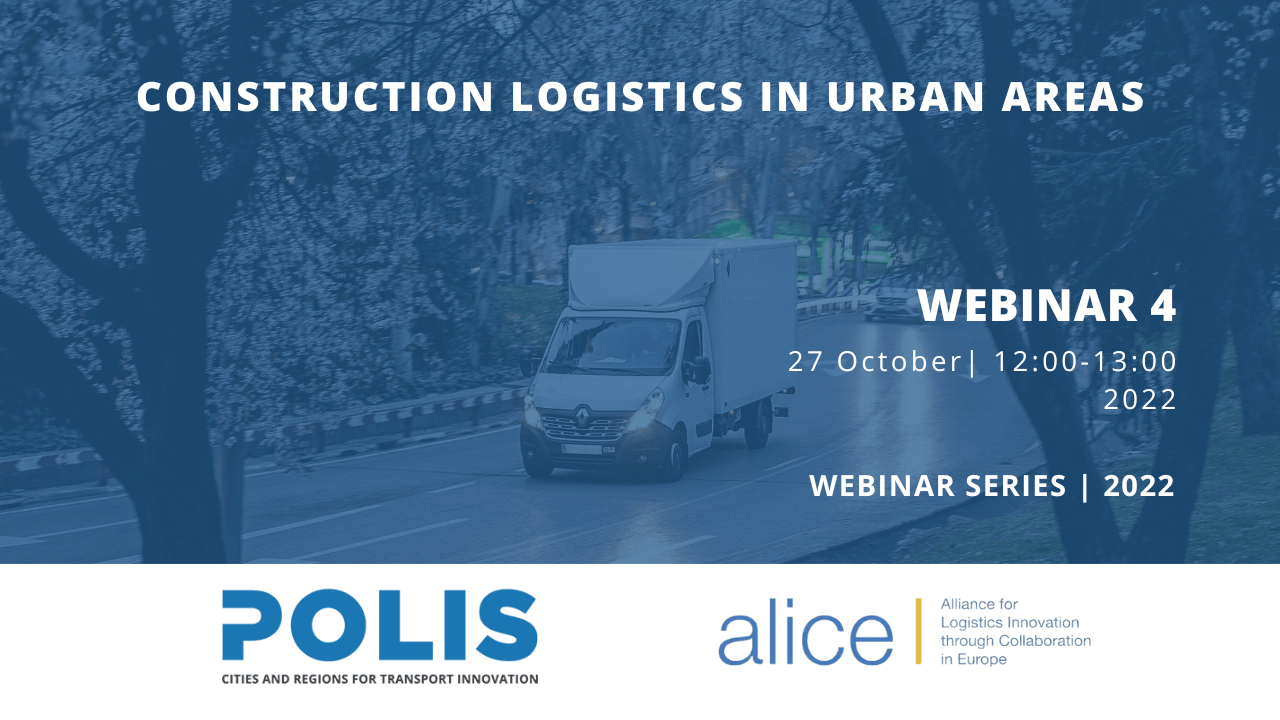POLIS-ALICE Webinar #4: Making construction logistics in urban areas more sustainable
Date: Thursday 27 October 2022
Time: 12:00 – 13:00 CET
Location: Online
To reduce negative impacts of urban construction sites, efforts into better transport and traffic planning around a construction site to manage freight flows are needed. City authorities can proactively manage the process during the planning phase of an urban construction project. A collaborative approach to consolidate construction materials presents potential benefits to construction companies and public authorities by reducing traffic flow and cost.
Objectives:
- To raise awareness of research and practices into this topic
- To share knowledge and good practice
- Highlight the contribution of IWT to move more efficiently and sustainably goods
This webinar will share best practices and raise awareness to policy makers and logistics practitioners on how to reduce negative impacts of construction logistics. Through this webinar challenges and needs for research and projects into this topic will be collected in order to form recommendations for future R&I activities and living labs.
Polis members can register HERE.
About the series:
As carbon reduction targets loom, demand for commerce rockets, and urbanisation rates accelerate, the freight sector faces a growing number of complex challenges. Yet, the opportunities available have never been so exciting! From Zero-emissions zones for freight, to cargo-bike delivery, urban delivery is changing rapidly. So how can we navigate the best way forward? Look no further than the POLIS-ALICE webinar series.
POLIS has a long-standing partnership with the European Technology Platform ALICE, working together to forge synergies between projects, initiatives, cities-regions, and companies to accelerate innovation. The webinar series come hot on the heels of the Joint Guide for advancing towards zero-emission urban logistics by 2030, published in December 2021. The guide brought together the views of a wide range of stakeholders and experts to guide local and regional authorities, national and EU governments, companies, civil society, and citizens, to address five key areas of intervention for taking sustainable urban freight to the next level.
